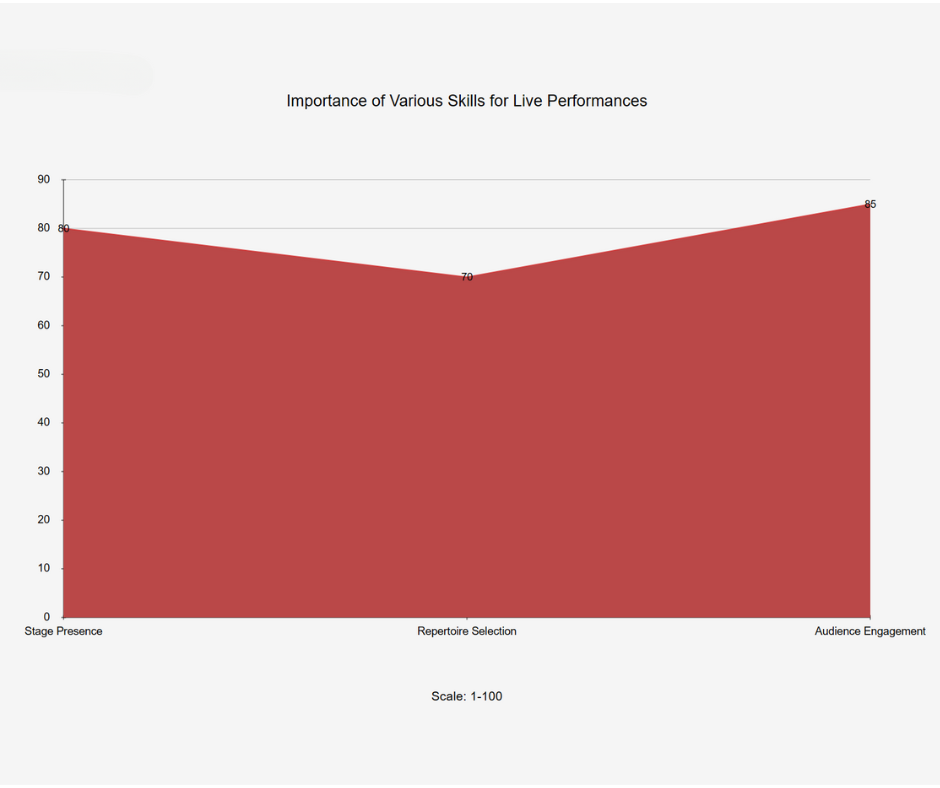Essential Skills for the Road
Posted: Aug 2, 2023
Category: Live Performance
fan engagement keys to success know your audience gigging work smarter stage presence learned skills k&m music school
**Guest post written by Katherine Dvoskin, Co-Founder & Piano Teacher for K&M Music School, San Diego.

Stage Presence
One of the most important skills for any performer is stage presence. It refers to the ability to command the attention of the audience and create a captivating performance experience. While some musicians are natural performers, stage presence can also be learned and developed through music education.
Music education provides opportunities for students to perform in various settings, including school concerts, recitals, and competitions. These experiences allow students to gain confidence in their abilities and learn how to engage with an audience effectively. By receiving feedback from teachers, peers, and even audience members, students can refine their stage presence and enhance their overall performance.
Additionally, music educators often focus on teaching students how to physically and vocally express themselves on stage. This includes proper posturing, movement, and gestures that effectively communicate the emotions and messages behind the music. By incorporating these elements into their performances, musicians can better connect with their audience and leave a lasting impression.
+Is It Worth Play Open Mic Nights?
Repertoire Selection
Choosing the right repertoire is crucial for any musician, as it can significantly impact the success of their performances. Music education equips students with the skills needed to select an appropriate repertoire that suits their abilities, interests, and target audience.
In music class, students get to dive into a treasure trove of tunes from all sorts of genres and styles. They get to know the greats - the composers who made the music that makes us tap our feet or shed a tear. But it's not just about the notes; it's about the stories behind the music. They learn the juicy history and the culture that shaped each piece. Plus, they get the inside scoop on how to bring the music to life with the right techniques. All this cool knowledge helps them pick the perfect playlist for their own gigs.
Moreover, music education often encourages students to explore a variety of genres and styles, which broadens their musical horizons and enables them to cater to diverse audiences. By diversifying their repertoire, musicians can appeal to different demographics and create memorable experiences for their listeners.
+Why Your Band Needs To Be Using Visuals in 2023
Audience Engagement
Engaging with the audience is a vital skill for any musician, as it enhances the overall concert experience and fosters a deeper connection between performer and listener. Music education provides students with opportunities to develop and refine their audience engagement skills through various performance settings.
In the classroom, music students often participate in school assemblies, educational performances, and community events where they interact with audiences of different ages and backgrounds. These experiences teach them how to communicate effectively with listeners, convey the meaning behind the music, and create a sense of shared experience.
Furthermore, music education emphasizes the importance of understanding the preferences and expectations of different audiences. By considering the demographics and cultural backgrounds of their listeners, musicians can tailor their performances to resonate more deeply with their audience. This level of audience engagement not only enhances the overall concert experience but also increases the chances of building a dedicated fan base.
As musicians transition from the classroom to the concert stage, the skills of stage presence, repertoire selection, and audience engagement become invaluable tools for success. Through music education, aspiring musicians can develop these skills and prepare themselves for the demands of life on the road."
Related Blog Posts:
+Building a Solid Foundation with Music Education
+What is the most essential skill for becoming a successful artist?
+10 Things You Need to Stop Doing on Stage Immediately
IOTM News
Join Our NewsletterVenue Reviews
More Reviews-
 Kyle Weber
Kyle Weber
Sounds like the music is just on hold but they are open to the possibility of bookings and plan to ramp up as summer approaches.
Placerville Public House, Placerville, CA - Booking Information & Music Venue Reviews · 4 days ago
-
 Luke
Luke
update as of 5.9.25 - they're no longer doing live music!
Placerville Public House, Placerville, CA - Booking Information & Music Venue Reviews · 1 week ago
-
 kristen
kristen
formerly rockwood #2
Knitting Factory at Baker Falls, New York, NY - Booking Information & Music Venue Reviews · 1 week ago
-
 Stud Ford & Will Coppage
Stud Ford & Will Coppage
We cannot say enough amazing things about The Nick. From the booking process, accommodating a late load in (stuck under an underpass for about 45...
-
 JonTylerWiley&HisVirginiaChoir
JonTylerWiley&HisVirginiaChoir
One of my favorite rooms to play, either solo or with a band. Great sound, great staff.
Gibson Music Hall, Appleton, WI - Booking Information & Music Venue Reviews · 2 weeks ago